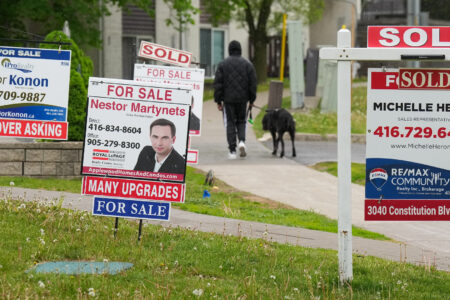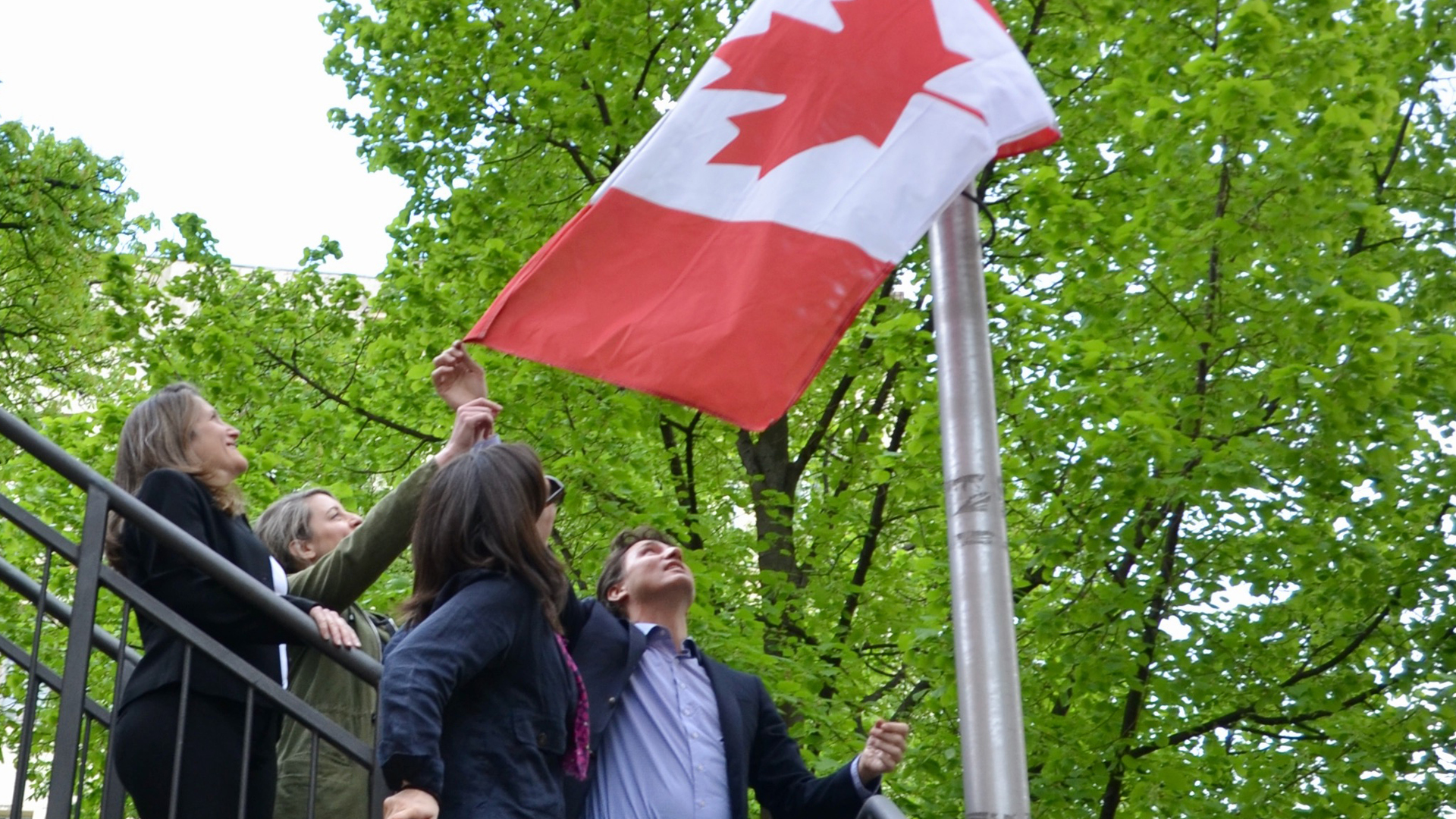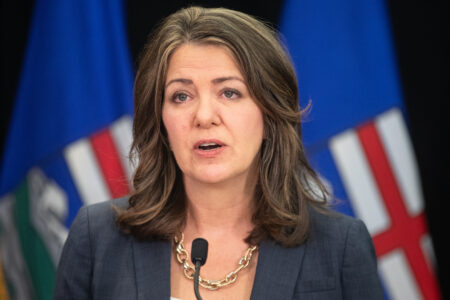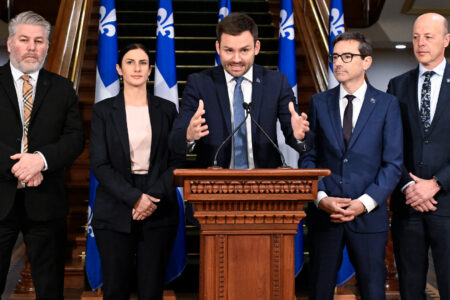
Whether or not you think it’s time for Canada to push for peace in Ukraine, it’s definitely time to clarify the aims, benefits and limits of its responses.
Those responses have evolved over the course of the war. Canada acted early and sent Ukraine non-lethal military aid and financial support. In a bid to change Russian President Vladimir ’s war calculus, the government joined allies to impose unprecedented economic and political sanctions along with humanitarian and refugee assistance. Canadians, outraged by the violence, were motivated to help.
Over time, our government began to send lethal weapons that it had previously denied, and it sent more troops to Ukraine’s borders. Amongst other actions, in late May it banned 1,000 sanctioned Russians from entering Canada. As part of the G7, Canada pledged a further $20 billion of financial support, alongside U.S. President Joe Biden’s $40-billion aid package. On May 24, the government announced its largest donation of military equipment.
Canada has already achieved its first, limited aim of helping Ukraine defend against Russia’s advances towards Kyiv and in the northern part of Ukraine. European security has been strengthened. NATO has unified and Finland and Sweden have applied for membership. Russia’s economy is weakened. It has suffered great military losses and it will long remain politically isolated from the West.
However, Canada’s goals are now unclear. Is its aim, for example, to achieve a resolution that supports a relationship between a sovereign Ukraine and the West and Russia? Is it to prevent Russia from launching future attacks? Is it to push Putin out of power? Or is it, more broadly, to prevent the victory of an authoritarian state?
How Canada can help Ukraine by leading on the world stage
Is Canada abandoning collective security in favour of a new isolationism?
Our aims seem to be escalating in reaction to events, including Russia intensifying its bombardment of the wider Donbas region and in the south. Ukraine’s continued success cannot be guaranteed.
The war has become more complex. How long and at what cost does Canada want to support a war against a nuclear-armed tyrant threatening more death, misery and destruction?
Ukrainians confront tough choices. Ukrainian President Volodymyr Zelenskyy’s aim has not been clear, but it appears he is resisting and pushing forward. Recently, his aide called for restoration of Ukraine’s 1991 borders. Canada seems to have decided to support him in this effort, but it should be clear for how long and at what expense.
Realistically, it will be hard to extricate Russia from the Donbas and Crimea where Russian troops have been dug in since 2014. Russian Foreign Minister Sergei Lavrov has called the Donbas an “unconditional priority” for Russia. Putin’s prestige is at stake.
This war will drag on. Many more Ukrainians will die as homes, buildings and infrastructure are further destroyed. If NATO looks to break Russia’s blockade of the port of Odesa, the risks of an expanding war increase. The additional danger is an escalation with nuclear weapons.
However, if Ukraine does not push forward, it will leave Russia with a land corridor from Crimea to Donbas (and perhaps more). Ukraine would be a truncated and poorer state if it were cut off from the mineral-rich south-east and lost access to the Black Sea. Those would be major losses.
Recently, Zelenskyy mentioned a third possibility – to negotiate. Perhaps now is the time to once again push for diplomacy, in the hope of preventing more deaths and destruction in a protracted war. There are great risks and extraordinary costs, including famine and increasing energy prices, of a continuing war.
With growing evidence of atrocities and little agreement on facts, some will argue that is it too early, too naïve or too dangerous. Putin shows little inclination to pursue peace. However, eventually, the war will be ended with negotiation.
The earlier a settlement can be reached, the sooner Canada can help with the massive reconstruction, refugees can return home and children’s education can resume. Negotiations might even prevent the Donbas from becoming another separatist conflict with no political resolution or having Russia annex more of its territory.
Russia does not have a grand strategy
A Canadian defence budget increase will need a policy rethink
Negotiations won’t be easy and will require political will, and international support which do not currently exist. They would require an immediate, sustained ceasefire. The real danger is that Russia takes the opportunity to regroup and attack again.
Negotiations would require all parties to discuss the status of Lukhansk and Donetsk in Ukraine, and the rights of Russian-speakers there. Zelenskyy will want to settle on terms favourable to Ukraine, including demilitarization and access to the Black Sea. Putin will push to keep his territorial gains. For Russia and Ukraine, this is an existential war, making compromises difficult.
Earlier in the war, Zelenskyy signalled that he might be open to a referendum on the question of Ukraine’s neutrality. Ukraine would not join NATO if it receives sufficient security guarantees another way. He may be holding this back as a bargaining chip.
Ukrainians must decide their own way forward. For now, they seem to want complete restoration of their territory.
Ukraine deserves Canada’s support to defend itself in response to Putin’s unprovoked invasion. Along with our allies, Canada has shown the will and ability to answer Putin’s aggressions and the right of countries to defend themselves.
Canada can continue to arm Ukraine and impose more and tighter sanctions. However, this may be a long and increasingly dangerous war of attrition. Our government should make sure that responses continue to be commensurate with Canadian values and goals. Canadians need a clear idea of the costs, limits, and possible unintended consequences of our engagement.
When Ukrainians are ready, supporting their inclination towards peace may be the best way to save lives, stand for universally held ideals and prevent further aggression.








